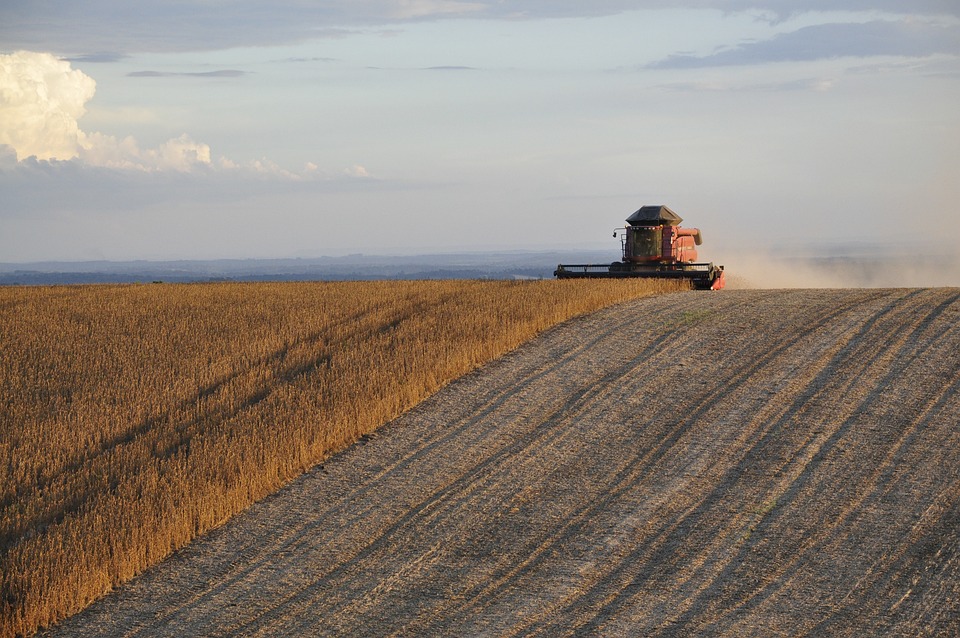[ad_1]
Soy sauce has been a staple condiment in various cuisines around the world for centuries. It is made from fermented soybeans, wheat, salt, and water, and has a unique flavor that enhances the taste of many dishes. However, the production of soy sauce can have a significant impact on the environment. In this article, we will explore the environmental impact of soy sauce production and discuss potential solutions to mitigate its effects.
- Impact on Land Use
- Greenhouse Gas Emissions
- Water Usage and Pollution
- Packaging and Waste
- Conclusion
- FAQs
- Q: Is soy sauce production harmful to the environment?
- Q: How can soy sauce production reduce its carbon footprint?
- Q: What can consumers do to support environmentally friendly soy sauce production?
- Q: Are there alternative options to traditional soy sauce that are more environmentally friendly?
- Q: How can soy sauce producers minimize water usage and pollution?
Impact on Land Use
The main ingredients used in soy sauce production are soybeans and wheat. The cultivation of these crops requires a large amount of land, which can lead to deforestation and habitat loss. In addition, the use of pesticides and fertilizers in crop production can contribute to soil degradation and water pollution. To address these issues, soy sauce producers can work with sustainable agriculture practices that help conserve land and minimize the use of harmful chemicals.
Greenhouse Gas Emissions
The fermentation process involved in soy sauce production produces carbon dioxide and other greenhouse gases. Additionally, the transportation of raw materials and finished products can contribute to carbon emissions. To reduce the carbon footprint of soy sauce production, companies can invest in renewable energy sources, improve manufacturing processes, and optimize transportation logistics to minimize emissions.
Water Usage and Pollution
Soy sauce production requires a significant amount of water for the fermentation and aging of the product. This can put a strain on water resources, especially in regions where water scarcity is a concern. Furthermore, the discharge of wastewater from production facilities can pollute water bodies and harm aquatic ecosystems. To address these issues, soy sauce producers can implement water-saving technologies and wastewater treatment systems to minimize their impact on water resources.
Packaging and Waste
The packaging of soy sauce products, such as bottles and containers, can contribute to plastic waste and pollution. Additionally, the disposal of by-products from the fermentation process can create waste management challenges. To reduce the environmental impact of packaging and waste, soy sauce producers can explore sustainable packaging options, such as biodegradable materials, and implement recycling programs for their by-products.
Conclusion
Soy sauce production can have a significant impact on the environment, from land use and greenhouse gas emissions to water usage and waste. However, there are opportunities for soy sauce producers to minimize their environmental footprint through sustainable practices and innovation. By adopting sustainable agriculture, improving energy efficiency, and implementing waste reduction strategies, the soy sauce industry can work towards more environmentally friendly production processes. Consumers can also support these efforts by choosing products from companies that prioritize environmental sustainability.
FAQs
Q: Is soy sauce production harmful to the environment?
A: The production of soy sauce can have environmental impacts, such as land use, greenhouse gas emissions, water usage, and waste generation. However, soy sauce producers can implement sustainable practices to minimize their environmental footprint.
Q: How can soy sauce production reduce its carbon footprint?
A: Soy sauce producers can invest in renewable energy sources, improve manufacturing processes, and optimize transportation logistics to reduce greenhouse gas emissions.
Q: What can consumers do to support environmentally friendly soy sauce production?
A: Consumers can choose products from companies that prioritize environmental sustainability and support initiatives for sustainable agriculture, energy efficiency, and waste reduction in the soy sauce industry.
Q: Are there alternative options to traditional soy sauce that are more environmentally friendly?
A: Some companies offer alternative soy sauce products made from organic and sustainably sourced ingredients, as well as environmentally friendly packaging. Consumers can explore these options to support more eco-friendly choices.
Q: How can soy sauce producers minimize water usage and pollution?
A: Soy sauce producers can implement water-saving technologies and wastewater treatment systems to minimize their impact on water resources and reduce wastewater pollution.
[ad_2]





Comments